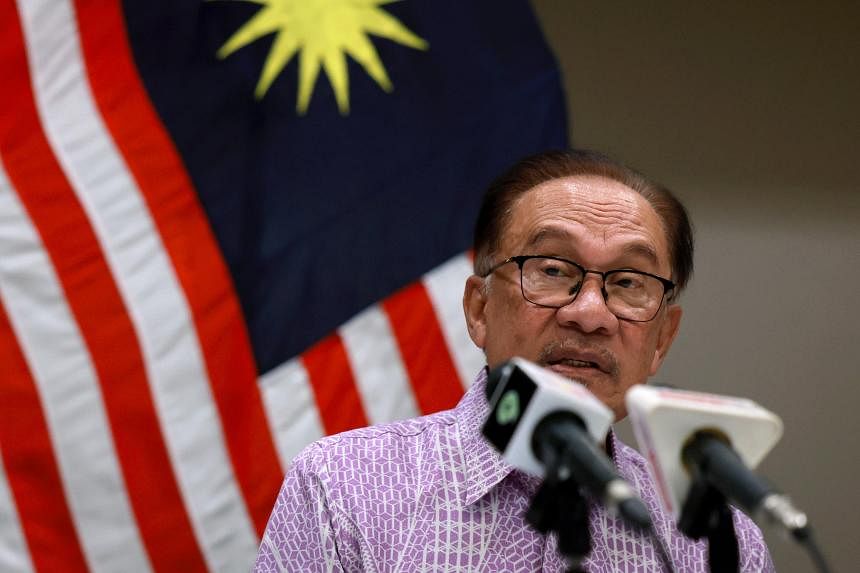KUALA LUMPUR - Malaysia is “actively and aggressively” looking at increasing the use of the ringgit to reduce trade dependency on the US dollar, said Prime Minister Anwar Ibrahim.
While acknowledging that most global trade was done in US dollars, Datuk Seri Anwar said that the country has begun using ringgit when trading with several countries, in line with “dedollarisation” by increasing demand for local currency.
“I have held discussions with China and Asean nations on how we can use local currency for trade. This was well received by China, and some 28 per cent of investment amounting to billions will not use the US dollar but be in ringgit,” he said when replying to a question raised by MP Awang Solahuddin Hashim in Parliament on Tuesday.
Apart from China, he said Malaysia has also successfully negotiated the use of the ringgit for trade with Indonesia and Thailand.
To a question from MP Wee Ka Siong, Mr Anwar said most government-linked investment companies and several local private companies have taken steps to conduct transactions in ringgit to increase demand for the currency.
“It will be very challenging for the ringgit if all transactions are done in US dollars, and that is why some companies are using up to 70 per cent of local currency for their transactions,” he added.
On the strength of the ringgit against the US dollar, Mr Anwar said it has nothing to do with fundamentals but more on the United States Federal Reserve’s moves to increase its overnight policy rates recently.
“The value of the ringgit is not dependent on fundamentals.
“Our growth is good, investment (is) good, inflation and unemployment are down, yet the ringgit is also down,” he said.
Mr Anwar said he had a meeting with Bank Negara governor Shaik Abdul Rasheed Abdul Ghaffour on Monday night, and the latter had a positive forecast for the ringgit by the end of 2023.
“His assumption is that there will be direction towards convincing growth by the end of this year based on the data and figures we have received,” he added.
Earlier, Mr Anwar acknowledged that the ringgit had slid to minus 6.5 per cent compared with the US dollar as at last Friday.
However, he said other regional currencies such as the Japanese yen (minus 10.8 per cent), Thai baht (minus 6.5 per cent), Korean won (minus 6.4 per cent) and Chinese renminbi (minus 4.7 per cent) were also affected.
Meanwhile, Mr Anwar, who is also the Finance Minister, said he would announce several measures under Budget 2024 to help ease the cost of living not only for the lower-income group but also other affected groups.
He informed the House that more than RM81 billion (S$23.4 billion) would be spent to provide subsidies in 2023.
Although rationalisation is needed to address ballooning subsidy costs, he said that it would not be at the expense of the lower-income and other affected groups. THE STAR/ASIA NEWS NETWORK

